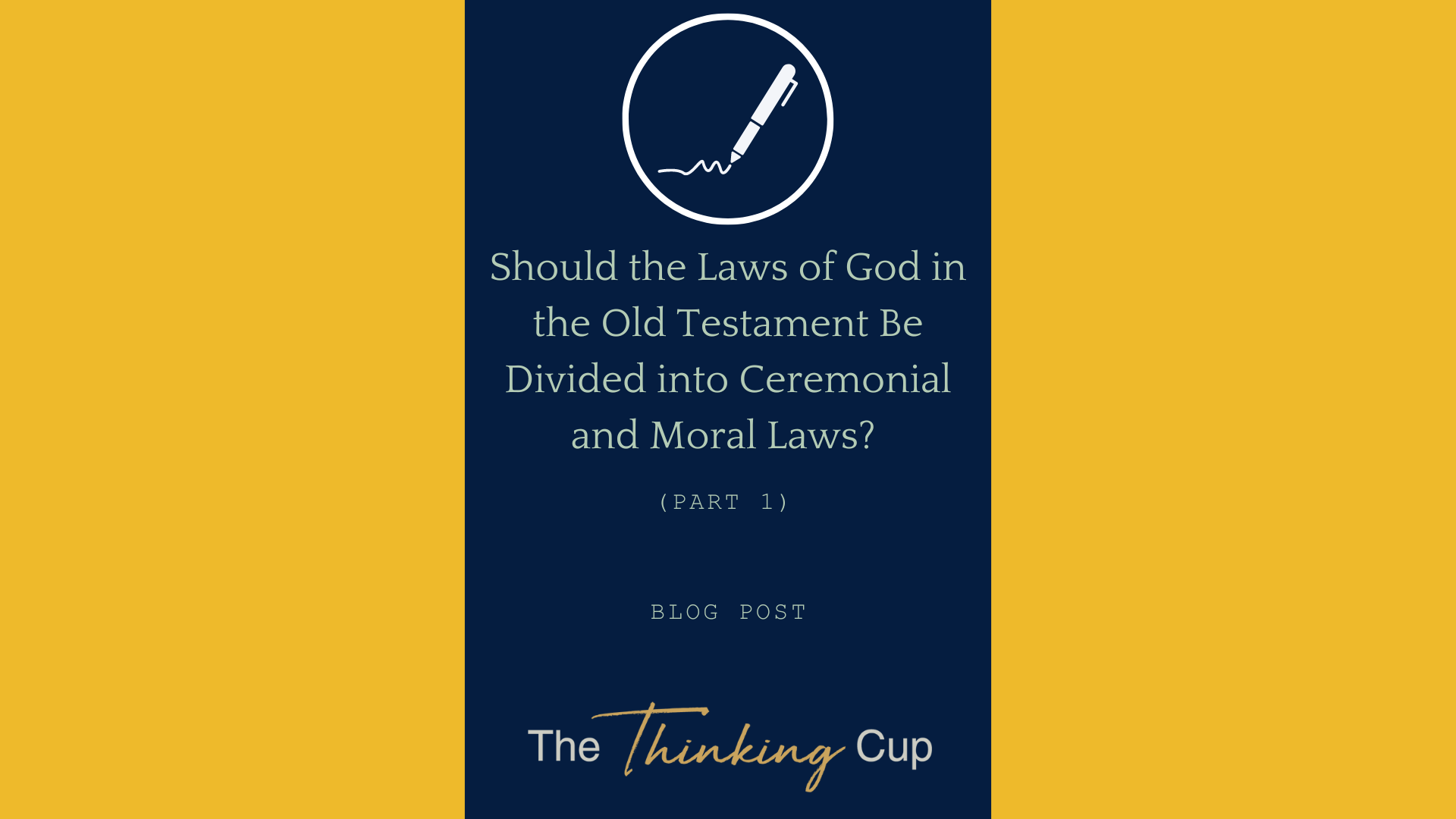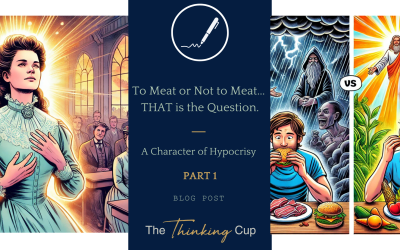The ceremonial Law of Moses has been abolished, but the Ten Commandments remain to be kept by all as God’s moral law. This is accomplished using the three-fold division of the law, separating the civil and ceremonial laws from the moral laws.
(This statement will be tested over the next few posts)
In my upbringing as a Seventh-day Adventist, I’ve learned that they like to distinguish between Moral and Ceremonial Law. This allows them to state that the Ten Commandments, which express God’s very character (where is that found in Scripture?), are eternal and must be kept.
It is first essential to understand that there is a difference between what the corporate church states through the fundamental beliefs, what pastors speak and preach about from those beliefs, what the laity believes to be true about the beliefs, and what the church congregants believe. These are never the same. What I will be speaking to in all of these areas is geared toward the Corporate Church’s stance and beliefs. I am not concerned with how that lives out in the church. The expression of the church’s corporate beliefs is entirely different.
We must first state what the SDA Denomination does believe about the Law and its eternal and binding status upon the believer. The following quote is belief number 19 from the Seventh-day Adventist’s fundamental beliefs:
“The great principles of God’s law are embodied in the Ten Commandments and exemplified in the life of Christ. They express God’s love, will, and purposes concerning human conduct and relationships and are binding upon all people in every age. These precepts are the basis of God’s covenant with His people and the standard in God’s judgment. Through the agency of the Holy Spirit they point out sin and awaken a sense of need for a Saviour. Salvation is all of grace and not of works, and its fruit is obedience to the Commandments. This obedience develops Christian character and results in a sense of well-being. It is evidence of our love for the Lord and our concern for our fellow human beings. The obedience of faith demonstrates the power of Christ to transform lives, and therefore strengthens Christian witness. (Exod. 20:1-17; Deut. 28:1-14; Ps. 19:7-14; 40:7, 8; Matt. 5:17-20; 22:36-40; John 14:15; 15:7-10; Rom. 8:3, 4; Eph. 2:8-10; Heb. 8:8-10; 1 John 2:3; 5:3; Rev. 12:17; 14:12.)” [1] (Emphasis added)
While most of this statement at face value seems biblically sound and beautifully worded, the emphasized statement, binding upon everyone in every age, brings the issue’s root into question. If the law is binding upon ALL people in EVERY age, then it would lead to the concept of the law being eternal. This will be the remaining focus of the topic at hand.
I want to present a few concepts from Adventist theology that must be in place to ensure the law theological concept of the law is binding on all people of all ages.
“While God remains God, his moral law will be binding upon all who would have any part in his life. God’s moral law is eternal; it is an expression of his very being. As such it can no more be abrogated than can God himself…” [2]
The article clearly states the separation between moral and other types of laws. This will be important in the logic since we certainly cannot believe that ALL the laws in the Old Testament are still binding. So, the textual gymnastics that must happen is to separate or categorize specific laws such that the ‘moral’ laws are only the ones still in place. We see this in the hermeneutics of the Adventist approach to the Law:
“We must, of course, distinguish clearly between the ceremonial law of the Old Testament and the moral law. The eternal requirements of the moral law are always binding upon God’s people, but the details of ceremonial law which typified Christ’s atoning and cleansing work were done away with when Christ, their great antitype, completed the work which he came to do and which they foreshadowed. The believing Old Testament saint, saved by grace, was under the obligation of a ceremonial law from which we have been freed because Christ fulfilled and finished all that the ceremonial pointed to. |
But, while we are freed from the ceremonial law, the obligation to keep the moral law rests even more heavily upon us who live in the enlightened age of grace than upon those who were living, by men’s own choice, under law. We have in fulfilment in Christ that which they had at the best only in prophecy. Their belief may have given them, through Christ, the same divine power to obey the law that we now have in him; but we live in the noonday light of the revelation of his consummated work; they moved in the twilight of yet unfulfilled hope.” [3]
Before we move into the research around the three-fold divisions of the law: moral, civil, and ceremonial, a few questions…
- Do you think the Old Testament Law of God should be categorized into moral, civil, and ceremonial?
- Do you think the Law of God is eternal and binding on every human?
- What part of the Law do you think was ‘nailed to the cross’? Or do you think something else?
(Part 2 of this series is here)
[1] General Conference of SDA, “What Adventists Believe About the Law of God.”
[2] The Seventh-Day Adventist Bible Students’ Source Book; The Seventh-Day Adventist Bible Commentary, vol. 9 (Review and Herald Publishing Association, 1962), 570.
[3] The Seventh-Day Adventist Bible Students’ Source Book; The Seventh-Day Adventist Bible Commentary, vol. 9 (Review and Herald Publishing Association, 1962), 570.




0 Comments